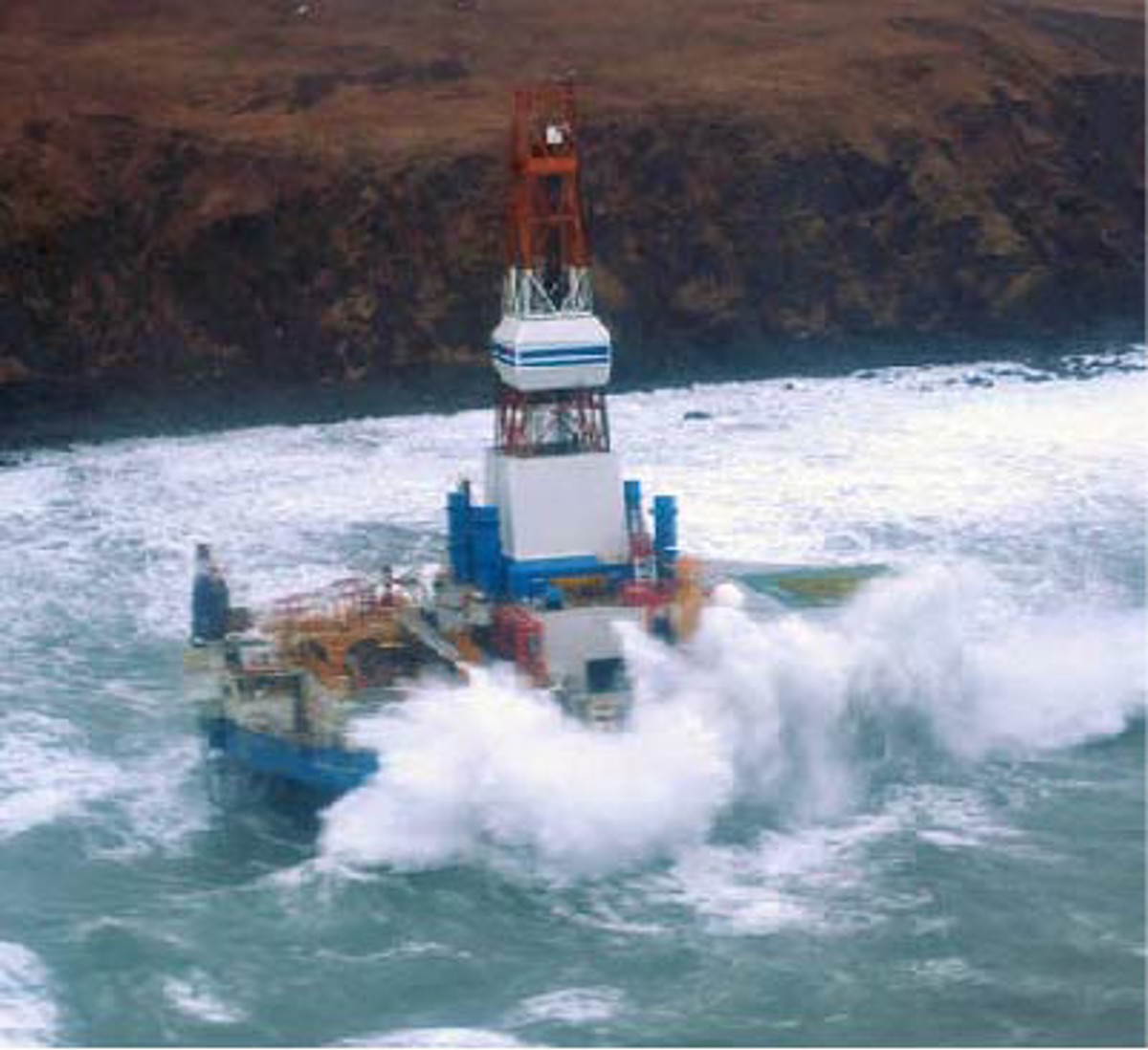Don’t lose your tow in heavy weather
- Safety Flash
- Published on 29 November 2016
- Generated on 25 April 2025
- IMCA SF 32/16
- 2 minute read
Jump to:
The United States Coastguard (USCG) has published the following marine safety alert to remind owners and operators of the importance of planning for significant towing operations.
What happened?
Though primarily aimed at large drilling rigs, such as semi-submersibles, conical or other types of non-standard tows, it has broad application to all offshore engineering activities.

In late 2012, the Kulluk, a conical drilling unit, suffered a series of mishaps which ultimately caused the rig to run aground in Alaska. An investigation was conducted by the USCG and the associated Report of Investigation can be found at uscg.mil/hq/cg5/cg545/docs/documents/Kulluk.pdf. The National Transportation Safety Board also published a Marine Accident Brief on the incident – see ntsb.gov/investigations/AccidentReports/Reports/MAB1510.pdf.
In early August of this year, the Transocean Winter – a 17,000-ton semi-submersible drilling rig – went hard aground on the west side of the Isle of Lewis, Scotland. This incident is currently under investigation by the UK Maritime Accident Investigation Branch (MAIB). The USCG alert notes that it could have similar causal factors to the Alaskan incident.
One recommendation stemming from the USCG investigation on the Kulluk incident was the establishment of a workgroup to address the issues related to the towage of mobile offshore drilling units (MODUs) in high latitude environments. The workgroups final report was delivered to the Coast Guard during Q2 2016. The report provides valuable information for all organisations and professionals associated with towing large structures at sea, such as MODUs.
IMCA Safety Flashes summarise key safety matters and incidents, allowing lessons to be more easily learnt for the benefit of the entire offshore industry.
The effectiveness of the IMCA Safety Flash system depends on the industry sharing information and so avoiding repeat incidents. Incidents are classified according to IOGP's Life Saving Rules.
All information is anonymised or sanitised, as appropriate, and warnings for graphic content included where possible.
IMCA makes every effort to ensure both the accuracy and reliability of the information shared, but is not be liable for any guidance and/or recommendation and/or statement herein contained.
The information contained in this document does not fulfil or replace any individual's or Member's legal, regulatory or other duties or obligations in respect of their operations. Individuals and Members remain solely responsible for the safe, lawful and proper conduct of their operations.
Share your safety incidents with IMCA online. Sign-up to receive Safety Flashes straight to your email.